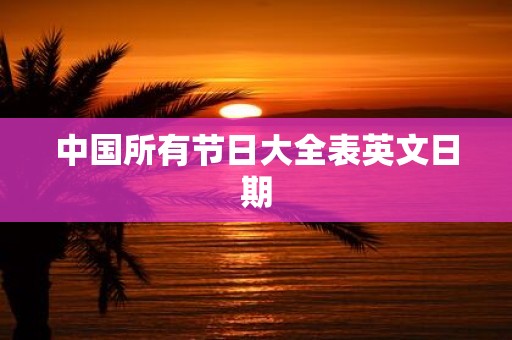As a country with a long history and rich culture, China has many traditional festivals that are celebrated throughout the year. These festivals not only carry the cultural heritage of the Chinese nation, but also provide an opportunity for people to come together, celebrate, and experience the traditions and customs of their ancestors.

Spring Festivals
The Spring Festival, also known as Chinese New Year, is the most important festival in China. It is celebrated on the first day of the lunar calendar, usually falling in late January or early February. The festival lasts for 15 days and is a time for family reunions, feasting, and exchanging gifts. During the festivities, people decorate their homes with red lanterns and couplets, and participate in dragon and lion dances.
The Lantern Festival is celebrated on the 15th day of the lunar calendar, marking the end of the Spring Festival. On this day, people hang colorful lanterns and eat tangyuan, a sweet glutinous rice dumpling. The festival is also known as the Chinese Valentine's Day, as it is a time for love and romance.
Qingming Festival
The Qingming Festival, also known as Tomb Sweeping Day, is a time for paying respects to ancestors. It falls on April 4 or 5 of the solar calendar, when the weather is warm and pleasant. On this day, people visit cemeteries to clean tombs and offer sacrifices to their ancestors. They also fly kites and enjoy traditional Qingming snacks such as qingtuan (green rice balls) and peach blossom porridge.
Dragon Boat Festival
The Dragon Boat Festival, also known as the Duanwu Festival, is celebrated on the 5th day of the 5th lunar month, which usually falls in May or June. The festival commemorates the death of the poet and statesman Qu Yuan, who drowned himself in the Miluo River in 278 BC. During the festival, people eat zongzi, a pyramid-shaped glutinous rice wrapped in bamboo leaves, and race dragon boats.
Mid-Autumn Festival
The Mid-Autumn Festival, also known as the Moon Festival, is celebrated on the 15th day of the 8th lunar month, usually falling in September or October. The festival is a time for family reunions and eating mooncakes, a traditional Chinese pastry filled with lotus seed paste or red bean paste. During the festival, people also admire the full moon and light colorful lanterns.
Double Ninth Festival
The Double Ninth Festival, also known as the Chongyang Festival, is celebrated on the 9th day of the 9th lunar month, usually falling in October. The festival originated from a belief that the number 9 is lucky and can ward off evil spirits. On this day, people climb mountains, drink chrysanthemum wine, and eat chongyang cake, a pastry shaped like the number 9.
These festivals are just a few examples of the rich cultural heritage and traditional celebrations in China. They not only provide a platform for people to celebrate their traditions and customs, but also serve as a window into the unique history and culture of China.

